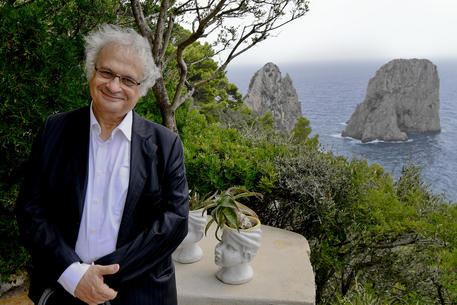"When I wrote this book months ago, it was necessary to prove that there was a shipwreck. Today, after all that has happened, it is not necessary. It is enough to look around, from America to Europe to China, to understand that the world no longer works, it is drifting and probably towards a shipwreck ".
Thus Amin Maalouf, the French-Lebanese writer who has been able to read "the world so much, among the immortals of the Academie Francaise and author of books such as The Crusades seen by the Arabs, The scali del Levante or Col rifle del consul of England. tells ANSA about his latest book, The shipwreck of civilizations, published in Italy by La nave di Teseo and awarded with the Malaparte 2020, the prestigious award that celebrates the 23rd edition and returns to Capri for the ninth consecutive year supported by Ferrarelle Spa .
"Not an easy edition, in the midst of the pandemic", admits the soul of the Gabriella Buontempo Prize, whose jury led by Raffaele La Capria has chosen an author "symbol of the encounter between the two cultures today protagonists in the world", as Maalouf, born in Beirut in 1949, but in Paris since the mid-1970s.
"Will the pandemic make us better? I think it is a consolation that humanity is very much in need of", he reflects, arriving in Capri after a small tour in Italy, hand in hand with his wife Andrée, author of cookbooks.
"We went through the lockdown in Paris, reading, writing. When we get home we will probably find a situation of closures again. But we have a quiet life. It hasn't changed us much."
On a global and social level, however, "it is a shock that literally blew up everything, every system. So maybe, yes, it is possible that it will make us better. There is really hope that such a unique event will make us reflect and can change us. "
A health emergency in which, he reflects, "for the first time all humanity has slipped together, at the same time", which becomes the embodiment of a great dualism between West and East.
In which the former defines himself as a "bearer of great democratic values", but then, Maalouf wonders, "does the West really defend these values? Or is it rather a hostility towards another great power like China, which is really frightening. because it risks becoming much stronger than the West? ".
A scenario in which, according to the author, "Donald Trump is only the tree that hides the forest. His foreign policy - he says - is no different from that of his predecessors and probably from who will succeed him, with a total disengagement towards any foreign issue and conflict. It is not true, as they say, that when Trump moves, he risks compromising peace processes in the Middle East, because there is no process in place. Europe - he regrets - should have been the parental power of the world, the great sage, but it has not given itself a role: it has contented itself with being only important, while to be a world leader you need political and perhaps even military strength. Europe today is a herbivore being in a world carnivorous".
And if the one with Curzio Malaparte, to whom the Prize is named, for Maalouf is actually a story of an "old course", ever since, "at the age of 13-14", in a Lebanon marked by continuous clashes and coups d'etat, read for the first time the essay Technique du coup d'Etat, how do you see your country of origin today?
"Bringing together people of different faiths is the most important challenge - he replies -. There is no other way, but it is clear that this path is not possible. Lebanon today is on the edge of the abyss, with many young people who leave the country ".
Tomorrow Maloouf will give a speech on the occasion of the awards ceremony at the Certosa di San Giacomo. Meanwhile, in these days, his new novel, Nos freres inattendus (The unexpected brothers), has been released in France.
"It is a story I wrote before the pandemic - he anticipates - but after all it is not so far from our scenarios. Because there is a narrator who tells of a strange phenomenon, whose nature is not understood, which has stopped the world . Investigating, he will discover that a group of people has already faced and solved this problem: the mysterious 'brothers' of the title ".
In collaboration with:
Ferrarelle - Malaparte Prize

